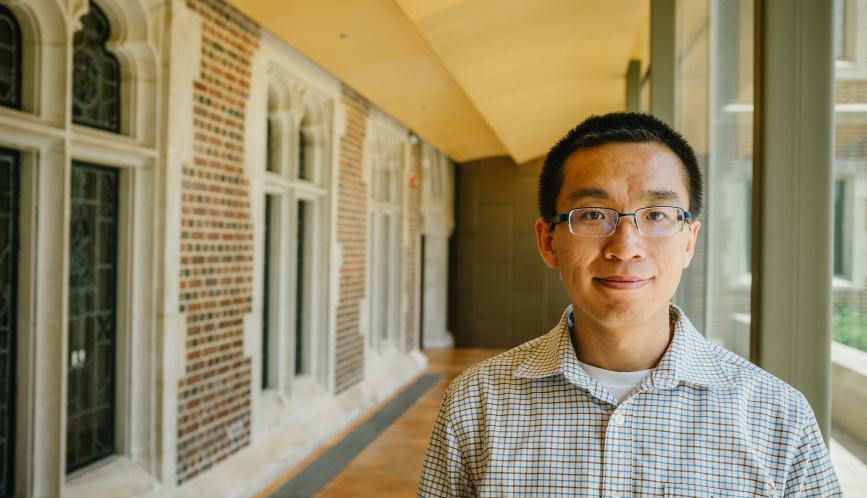Hanzhe Zhang is the HCEO Summer Scholar-in-Residence and is a member of the Early Childhood Interventions network. He is an Assistant Professor in the Department of Economics at Michigan State University. His research and teaching interests include microeconomics, matching theory, game theory, labor economics, and family economics.
Please describe your area of study and how it relates to current policy discussions surrounding inequality.
I study gender inequality in human capital investments and the marriage market. Around the world, more women than men go to college but women continue to earn less income on average. For example, in the United States, 57% of college students are women (“gender gap in college”), but women on average earn 79% what men earn (“gender gap in income”). I provide an innovative unified explanation for these two important gender gaps. The key driver is the biological difference in reproductive length. The same force also helps to explain gender inequalities in occupational choices, marriage-age, and other marriage-market and labor-market outcomes.
Understanding the fundamental forces that shape the observed patterns in education, marriage, and labor markets helps us more clearly analyze problems associated with gender inequality and in turn design more effective policies to reduce gender inequality. Policies and technological advances such as maternity leave and in vitro fertilization may have far-fetching implications for women’s labor market opportunities and bargaining power at home.
What areas in the study of inequality are in most need of new research?
As data and computing power grow in the information age, data analysis of inequality issues has exploded. However, accompanying theoretical analysis of inequality issues has not caught up. Theoretical investigations of key inequality issues such as intergenerational mobility, early childhood development, and gender inequality in the marriage market and the labor market are areas that need more attention. Application of cutting edge information-economic and game-theoretic methods to relevant inequality issues is an area with huge potential. For example, game-theoretic analysis of dynamic parent-teacher-child interactions can help us design better education policies.
What advice do you have for emerging scholars in your field?
Read broadly. Think deeply. Read broadly so that you know what are important and interesting issues. Think deeply so that you can judge others’ work and make a significant contribution.



